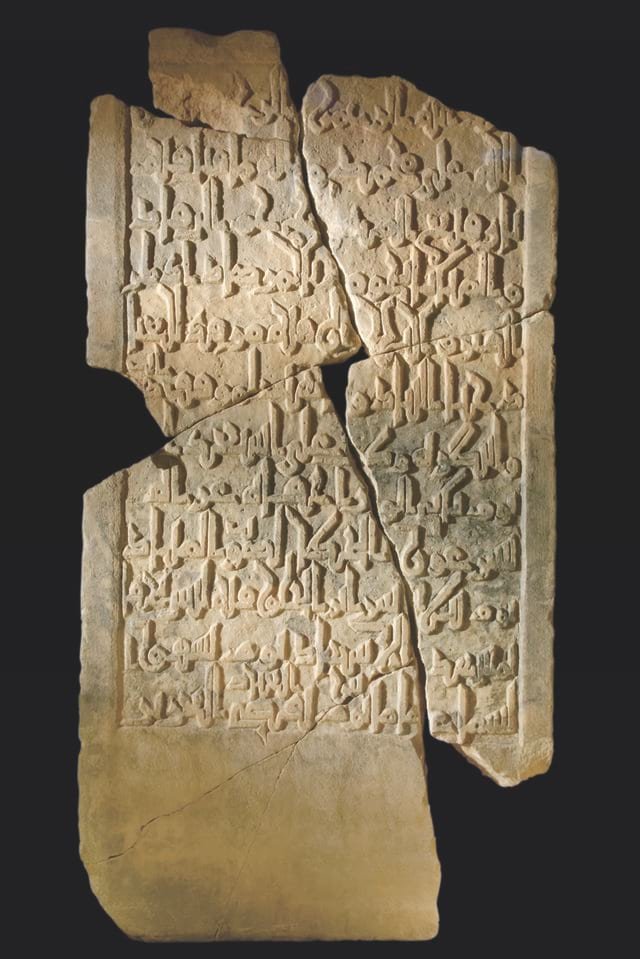Stone monument
- Object Name
- Stone monument
- Culture / Site
- Sane necropolis, Gao, Mali
- Medium
- Marble
- Date
- 12th century
- Dimensions
- 87 x 45 cm
- Credit Line
- Musée national du Mali, Bamako, R88-19-279. © Marie-Lan Nguyen/Wikimedia Commons. Shared under CC-BY 4.0 license
- Section
- Saharan Frontiers/The Movement of Language, People, and Ideas
- Description
Arabic literacy traveled across the Sahara along with books, inscribed objects, and religious practices, as an offshoot of trans-Saharan trade. The twelfth-century marble grave monument from the cemetery that lies near the archaeological site of Gao Saney, Mali, is inscribed with a poem inspired by a Qur’anic verse that reads in part, “… alone, He has no partner, and Muhammed is His servant and His messenger. He lived and died faithful to this religion and will live again if it is God’s will—May God have mercy on whomever asks for mercy for him.” It is likely one of a pair of stones; the other would have borne the name, title, and dates of a member of Gao’s ruling class. The stone is one of five surviving monuments made in Alméria, Spain, and transported across the Sahara Desert for clients in Gao.
